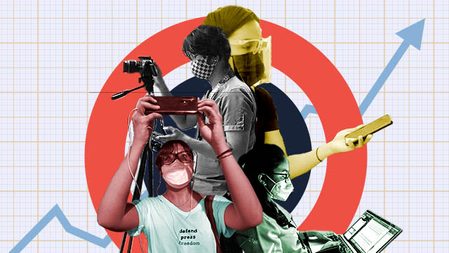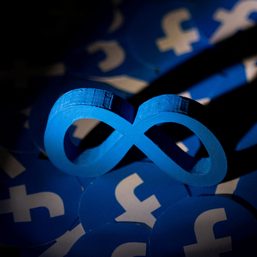SUMMARY
This is AI generated summarization, which may have errors. For context, always refer to the full article.

The fact is that one viral social media post can make or break a company. With people chronically online, news (and lies, for that matter) spreads faster than wildfire.
While social media has become essential to marketing strategies, so should crisis management. You’ll never know how people will react online, and one post can trigger a cascade that you likely have not prepared for. But there are things within your control.
Take the case of motorcycle ride-hailing firm Angkas, whose 2020 safety update required passengers to input their height and weight. Netizens took the requirement as fat-shaming and discriminatory. A year before that, the firm tweeted, comparing the first time you ride a mototaxi with sex. In 2023, they were also called out for trivializing incest and rape through an ad.
Angkas is known to have an edgy and meme-filled approach to their social media strategy. But when the situation calls for it, they know how to respond sensitively and address issues before they get worse.
For their 2020 update, they apologized and clarified why the feature was installed. For their 2019 tweet, they acknowledged that their playfulness on social media went overboard and even cast an “unfair light” on their biker-partners. Angkas also took down their 2023 ad and promised that they would continue to listen to their community.
Tide’s case, meanwhile, came from out of nowhere. In January 2018, there was an uptick in poison-related emergency calls in the United States. It turned out that teenagers were joining an online challenge where they popped Tide pods into their mouths and filmed the entire process.
Forbes.com said that Tide handled the situation well. First, the company had prepared for the unexpected by having warnings on its product labels and website. Second, Tide quickly issued an official statement about ingesting Tide pods. Third, Tide considered the demographic of those who joined the challenge and enlisted the help of someone relevant to them – New England Patriots’ star athlete Rob Gronkowski. Gronk made a video together with Tide, reminding people that Tide pods were for doing laundry only.
These cases were short-lived, and the conversations mostly happened online. But some crises have long-term implications and are more damaging.
Potential risks turning into full-blown crises
The past decade hasn’t been easy for Boeing. Its line of 787 Dreamline aircraft has been flagged for safety concerns numerous times since its launch in 2011. Then two fatal crashes involving Boeing’s 737 Max 8 jets occurred in 2018 and 2019, resulting in the entire line being grounded for 20 months.
On January 5, 2024, a Boeing 737 Max 9 door operated by Alaska Airlines blew off mid-air. The plane had to make an emergency landing, and posts by passengers onboard went viral.
More incidents involving Boeing planes have since been reported by United Airlines and Southwest Airlines. Two whistleblowers who came forward, claiming Boeing’s flawed quality control systems, passed away in the last two months, and investigations are ongoing.
The number of consecutive incidents, as Forbes.com writes, “provides business leaders with an important crisis management lesson: as soon as you know something, do something.”
Entrepreneur.com also compiled responses from the CEOs of Boeing, United Airlines, and Southwest Airlines in this write-up. In a nutshell, Boeing acknowledged the errors, apologized, and is working with regulators to tighten quality control.
While the issue is far from being resolved, a lot can be learned from how Boeing is handling communications to help alleviate the situation.
Reputation management
Rappler knows crisis management all too well.
Former president Rodrigo Duterte’s attacks against the media rattled newsrooms. Rappler, for its part, was slapped with a dozen legal cases, while its journalists, led by CEO Maria Ressa, were repeatedly threatened online. The company had to create and implement a crisis management plan, which helped Rappler deal with the attacks, sustain operations, avoid layoffs, and craft a sustainable business model.
Its resilience showed in numbers. After a drop in revenue and traffic at the height of the attacks in 2017 and 2018, Rappler ended 2019 with positive net income – a trend that continues to this day.
How Rappler survived those dark years under Duterte hinged on its three pillars – journalism, community, and technology – and how they were pushed simultaneously to galvanize public support here and abroad. Rappler journalists persisted in their investigations into disinformation and Duterte’s drug war – two issues that brought together communities of action that eventually established the #HoldTheLine coalition and #FactsFirstPH, a first-of-its-kind multi-sectoral approach to battling disinformation.
Rappler also created new revenue streams that banked on the company’s core strengths in data and tech, such as a new data consultancy firm called Nerve, which has been able to produce award-winning campaigns.
And for holding the line and standing up to Duterte, Maria Ressa was named Time Magazine’s Person of the Year in 2018, and would later receive a Nobel Peace Prize in 2021.
Fundamentals remain
Indeed, while technology has caused exponential growth in companies, it has also made the problems they face more complex. However, the fundamentals of crisis management remain.
As these companies have shown, the key to dealing with a crisis is to acknowledge it, be agile in addressing it, be adept in finding creative solutions, and take the long view.
Everybody is vulnerable to crisis. What matters most is what you decide to do next.
If you want to learn more about crisis management and how to handle crises better, sign up here for future content and learning sessions:
– Rappler.com
Add a comment
How does this make you feel?

![[OPINYON] Tungkol sa naging viral na social media conjecture](https://www.rappler.com/tachyon/2024/07/thought-leaders-conjecture-07262024.jpg?resize=257%2C257&crop_strategy=attention)
![[DECODED] The Philippines and Brazil have a lot in common. Online toxicity is one.](https://www.rappler.com/tachyon/2024/07/misogyny-tech-carousel-revised-decoded-july-2024.jpg?resize=257%2C257&crop_strategy=attention)



There are no comments yet. Add your comment to start the conversation.